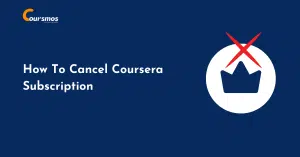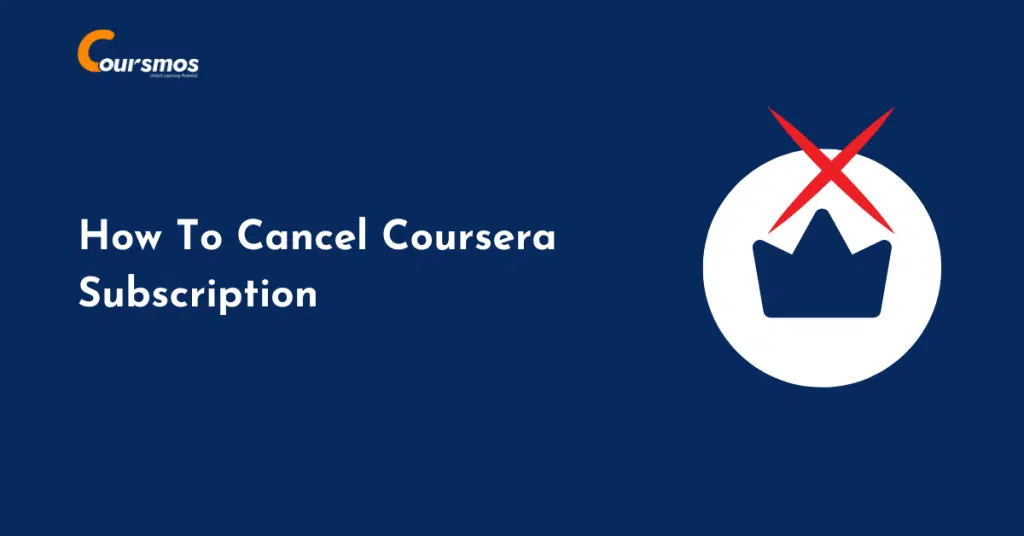Educational credentials play an essential role in career advancement and professional growth. Two popular options that often confuse students are certificates and diplomas.
Both offer valuable skills and knowledge, but they serve different purposes and target different career goals. The core differences between these educational pathways will help you make a better decision for your future.
This guide breaks down everything you need to know about certificates versus diplomas, including duration, costs, career prospects, and which option might work best for your specific situation and professional aspirations.
Key Differences: Certificate vs Diploma
These differences between certificates and diplomas will help students make better educational choices. The following table highlights the main factors that distinguish these two educational pathways.
| Factor | Certificate | Diploma |
|---|---|---|
| Duration | A few months (1-7 months) | 6 months to 3 years |
| Focus | Specific skills and specialized training | Broader, more general education |
| Average Cost | $50 per month to $6,000 | $1,000 – $20,000 |
| Prerequisites | Minimal requirements | May require high school completion |
| Flexibility | High flexibility, often online options | Moderate flexibility |
| Career Scope | Specific job roles | Wider range of career options |
| Academic Level | Can be undergraduate or graduate | Typically post-secondary |
Students today have access to numerous online learning opportunities. Many courses that you can do online in the USA offer certificates upon completion, making education more accessible than ever before. These options provide flexibility for working professionals and students.
Further, you will understand the clear differences between certificates and diplomas, where you can decide which educational path aligns with you best.
Certificate Vs Diploma: Duration And Time Commitment
Time commitment is one of the most significant factors to consider when choosing between educational credentials and career advancement options.
Certificate Duration and Time Commitment
Certificate programs offer quick entry into specialized fields with minimal time investment. Most programs are completed within one to seven months, allowing students to balance their studies with existing work schedules.
This shorter timeframe appeals to professionals seeking rapid skill development without extended career interruptions or major lifestyle changes.
Diploma Duration and Time Commitment
Diploma programs typically require longer commitments, spanning from six months to three years, depending on the subject area.
These programs include extensive coursework, practical training, and hands-on experience. Additionally, if you are considering further online education at the University of Phoenix, verify whether it will benefit you in continuing education pathways.
According to Reddit discussions, Canadian students note that certificates typically take one year for college programs, while diplomas require 2-3 years, and degrees usually require four years from universities. Overall, it depends on you what you prefer for further learning.
Certificate Vs Diploma: Average Cost
Financial investment varies significantly between these educational options, making cost a crucial factor in decision-making for students and working professionals.
Certificate Average Cost
Certificate programs offer budget-friendly education, with costs ranging from $50 per month to a total of $6,000. Many online platforms provide affordable monthly subscriptions, making specialized skills accessible to students with limited budgets and tight financial constraints.
For additional information, go through the Coursera pricing, as it is the most widely used online learning platform by many learners, from beginners to professionals.
Diploma Average Cost
Diploma programs typically require a higher financial investment, ranging from $1,000 to $20,000, depending on the institution and the field of study.
While more expensive, diploma graduates often command higher starting salaries than certificate holders, potentially offsetting the initial cost through improved earning potential and career advancement opportunities.
Diploma Vs Certificate: Job Opportunities
Career opportunities differ significantly between diplomas and certificates, with each credential opening doors to specific industries and job roles based on skill requirements and employer expectations.
Diploma Job Opportunities
Diploma graduates access broader career paths across multiple industries with enhanced earning potential and advancement opportunities. After graduating from high school, you can move to take a diploma and build specialized expertise.

- Healthcare: Practical Nursing, Medical Laboratory Technician, Radiologic Technologist.
- Technology: Software Developer, Cybersecurity Specialist, Network Administrator.
- Business: Accounting Assistant, Legal Office Assistant, Administrative Coordinator.
- Technical Trades: Motorcycle Repair Technician, HVAC Technician, Electrical Technician.
- Creative Fields: Floral Designer, Graphic Designer, Interior Design Assistant.
- Data Science: Data Analyst, Database Administrator, Statistical Assistant.
- Fitness: Certified Personal Trainer, Recreation Coordinator, Sports Medicine Assistant.
Certificate Job Opportunities
Certificate holders enter specialized roles requiring specific technical skills and focused expertise. These programs target high-demand sectors with immediate employment potential and skill-based hiring practices.

Healthcare Sector: CNA (Certified Nursing Assistant), Medical Assistant, Dental Assistant, Emergency Medical Technician, Pharmacy Technician, Medical Coder, Diagnostic Medical Sonographer, Phlebotomist.
Technology Sector: Web Developer, Cybersecurity Analyst, Cloud Support Specialist, Help Desk Analyst, IT Support Specialist, Computer Technician.
Legal Field: Paralegal, Court Reporter, Legal Secretary.
Construction Industry: HVAC Installer/Technician, Construction Inspector, Certified Welding Inspector, Architectural Drafter, Building Inspector, Heavy Equipment Technician.
Business Services: Project Management Professional, Human Resources Specialist, Certified Public Accountant.
Professional Certificate vs Diploma: Online Learning
Online education has transformed how students access professional training and skill development, offering flexible learning options that accommodate working professionals and busy schedules worldwide.
Professional Certificate Online Learning
Leading platforms, such as Coursera, DataCamp, Udemy, edX, Alison, and Skillshare, offer extensive certificate programs. They offer both free and paid options for learners. Also, Khan Academy makes it more accessible by providing free courses to students.

Students have the flexibility of self-paced learning, which allows them to balance work commitments while acquiring new skills. These platforms offer industry-recognized certifications in various fields, including technology, business, healthcare, and the creative arts.
Interactive assignments, video lectures, and peer networking create engaging learning experiences that match the quality of traditional classroom education.
Diploma Online Learning
Online diploma programs represent post-secondary, non-degree professional training designed for specific vocational preparation.

These programs span healthcare, technology, business, and technical trades, offering structured curricula over extended periods of time. Traditional three-year diploma programs now include online components, providing students greater accessibility.
Many institutions combine virtual classrooms with practical training requirements. Some online colleges pay you to attend by offering financial aid and scholarships, making diploma and degree education more affordable and attractive for career-focused students seeking professional advancement.
Diploma vs Certificate: Which Is Better?
The choice between diplomas and certificates depends entirely on individual career goals, time availability, and financial circumstances.
While pursuing my business diploma, I simultaneously enrolled in a digital marketing certificate course through an online platform. The diploma provided business fundamentals and networking opportunities with classmates, while the certificate offered focused, immediately applicable skills I could use at my part-time job.
However, note that a diploma requires a more time-consuming commitment and in-depth study, whereas the certificate delivers quicker results. Both were valuable to me.
The diploma built my foundational knowledge, while the certificate enhanced my practical skills, which I added to my resume.
Certificate vs Diploma: Which Should You Choose?
Your career goals, timeline, and budget determine the best choice between certificates and diplomas.
Consider a Certificate Program If You
- Need quick skill acquisition for a career change.
- Want to supplement existing qualifications.
- Have limited time availability.
- Prefer lower financial investment.
- Target specific technical roles.
Choose a Diploma Program If You:
- Want practical field knowledge.
- Seek broader career opportunities.
- Can commit to longer study periods.
- Value hands-on training experience.
- Plan to advance to management roles.
Read Next:
Conclusion: Certificates Are Better Than Diplomas For Short-Duration Courses
Certificates and diplomas both serve important roles in professional development and career advancement.
Certificates offer quick, focused training in specific skills, while diplomas provide a broader education and deeper knowledge in a particular field. However, your personal circumstances, career goals, and industry requirements should guide your decision.
Success depends more on matching your choice to your specific situation than on selecting the ‘better’ credential. Both pathways can lead to rewarding careers and professional growth, so choose wisely.
FAQs
Many institutions allow certificate graduates to transfer credits toward diploma programs, reducing the overall completion time.
Employer preferences vary by industry and specific job requirements. Some employers value specialized certificate skills, while others prefer the broader knowledge diplomas provide.
Online certificates from accredited institutions hold similar value to in-person programs. Employer recognition depends on the institution’s reputation and the quality of its programs.
Many diploma programs offer part-time or evening options that accommodate working students. However, some intensive programs may require full-time commitment.
Salary potential depends on the specific field, location, and individual skills, rather than the type of credential. Both certificates and diplomas can lead to well-paying careers.







